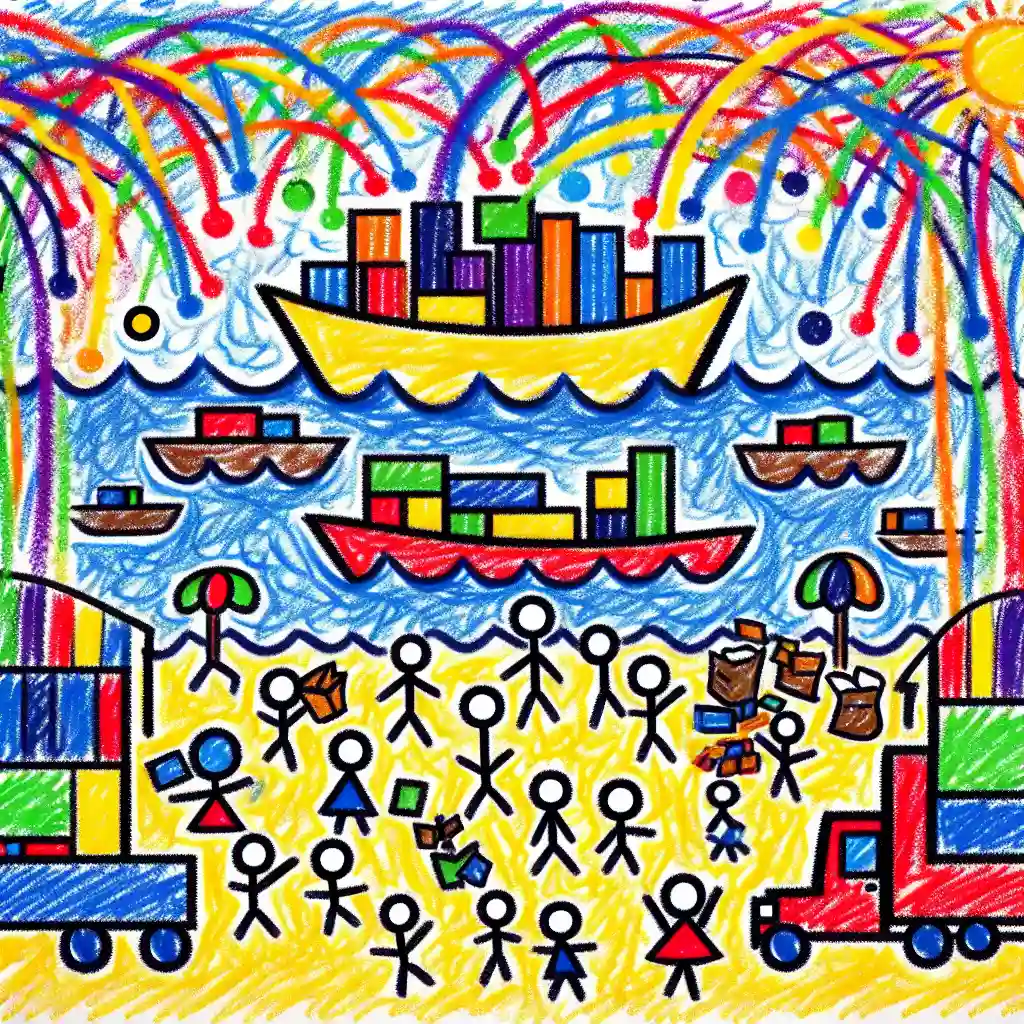US economy grows after swing in imports

Explain Like I'm 5
Imagine you have a lemonade stand, and you usually buy your lemons from a neighbor. One day, you decide to buy fewer lemons because you found some in your backyard. Suddenly, you have more money left because you didn't have to buy as many lemons from your neighbor. Now, your lemonade stand is doing better because you spent less money. The U.S. economy is like your lemonade stand. It grew because it bought fewer things from other countries, which is like finding lemons in the backyard. This means it spent less money outside and kept more money inside the country.
Explain Like I'm 10
The U.S. economy is like a giant machine that needs parts and pieces from all over the world to keep running. Sometimes, it buys a lot from other countries, which is called importing. But recently, the U.S. started buying less from other countries and used more of what it already had. This is partly because of new rules called tariffs that made buying things from other countries more expensive.
Because the U.S. spent less money on imports, more money stayed in the country. This helped the economy grow. It's like if your family stopped eating out and cooked at home instead, saving money. However, just because the economy is growing doesn't mean everything is perfect. Sometimes, when a country buys less from others, those other countries might stop buying from us too. It's a delicate balance!
Explain Like I'm 15
The U.S. economy's recent growth can be attributed to a significant decrease in imports. This shift comes after the introduction of tariffs by the previous administration, which were taxes added to products coming from other countries. The idea was to make imported goods more expensive so people and businesses would buy more products made in the U.S. This would ideally boost domestic industries.
However, there's more to the story. When imports decrease, it affects the global trade balance. Other countries might retaliate or reduce their own imports from the U.S., which can lead to trade wars. While in the short term, this reduction in imports has helped the U.S. economy grow, the long-term effects can be complex and unpredictable. Economists are watching to see how these changes will affect global economic relationships and whether the growth is sustainable without causing inflation or other economic issues.
As we move forward, it's important to keep an eye on how these policies continue to impact both the domestic economy and international trade dynamics. The situation is a big puzzle where changing one piece can shift everything else.
Want to read the original story?
View Original Source